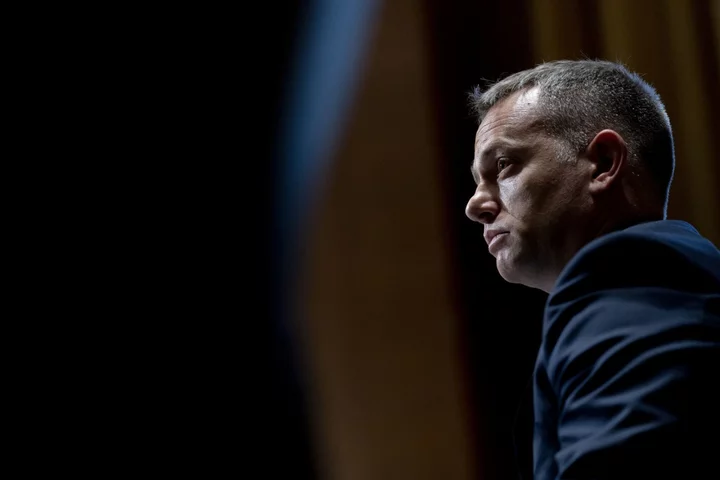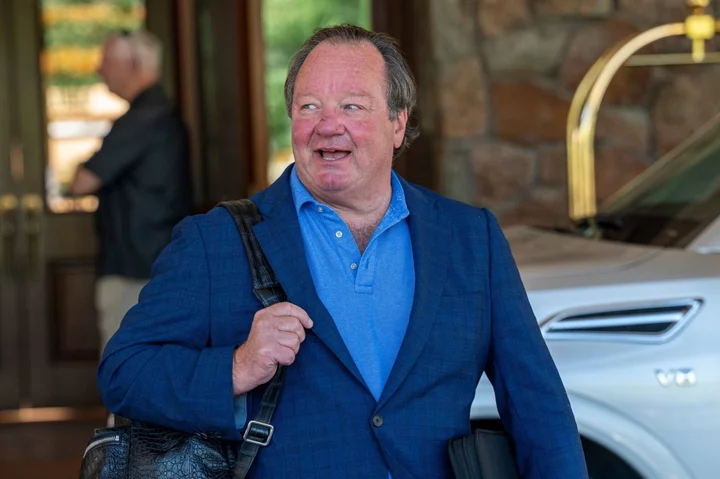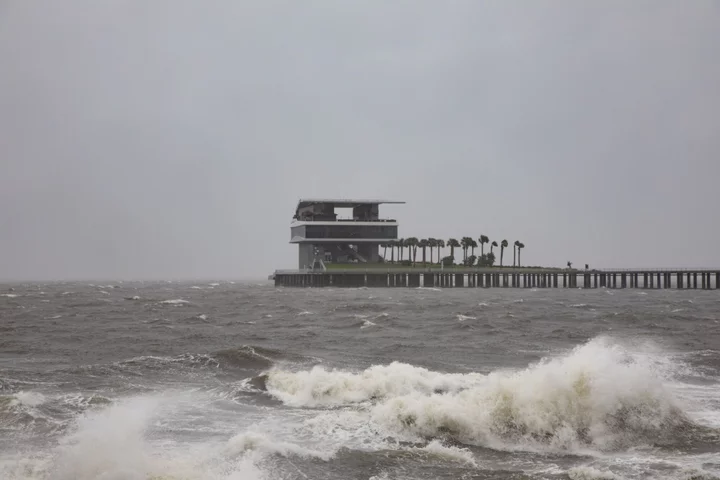One of the original architects of a plan to limit Russia’s oil profits proposed steps to fix the faltering program.
Ben Harris, a former senior official at the US Treasury who helped design the oil-price cap, said the Group of Seven nations and European Union need to crack down on Russia’s evasion of the limit and raise the price level, making it a painful but tolerable-enough option for Moscow.
“If you’re going to commit to at least a moderate level of enforcement, then you have to commit to a high enough level of the price so that Russia doesn’t shut in the oil or look for alternative avenues for shipment,” Harris, now director of economic studies at the Brookings Institution in Washington, said in an interview.
Conceived in mid-2022 and imposed last December, the price cap on Russia’s seaborne petroleum exports aimed to limit Moscow’s oil revenue while softening the blow on the global economy from sanctions enacted after Russia’s invasion of Ukraine. It prohibits firms based in the EU and G-7 countries from involvement in the transport of Russian oil unless it’s priced under $60 a barrel.
These nations don’t purchase Russian oil but firms based there still provide crucial services including shipping, financing and insurance.
Working in tandem with other sanctions, the cap initially seemed to work: Moscow kept exporting even as the measure suppressed its profits. But in recent months, the rule has had less bite as Russia found ways around it.
The spread between Russia’s Urals oil and Brent, a global benchmark, has fallen to about $9 from around $30 when the cap first came into effect, signaling that Moscow isn’t losing out on as much revenue as before. The data on Urals crude is compiled by Argus Media.
Russia Fleet
Russia bought its own fleet of aging vessels and backed it with its own insurance, as alternatives to Western services, allowing it to move more oil outside the cap.
Enforcement inside the cap has also proved flimsy, as evidence mounts that western firms are being used for Russian cargoes purchased well above the $60 a barrel cap.
One group of researchers found that in early 2023, half the oil from Russia’s pacific port of Kozmino was carried or insured by western firms, but almost all the port’s export volume was priced above the cap.
Treasury Secretary Janet Yellen recently conceded the cap’s effectiveness had faded and its rules were being flaunted, adding that the coalition would consider ways to repair the program.
EU officials have also acknowledge privately that the cap isn’t working as it should and say the G-7 — which leads the measure — could look at ways to enforce it more effectively. G-7 finance ministers meet this week in Marrakech, Morocco.
“The first thing you could do is simply begin more aggressive investigation into the attestation regime,” Harris said, referring to the pricing documents that service providers must collect for any shipment of Russian oil they back. “Put companies on notice that the attestation system will be taken seriously.”
Harris said that as a second step, the coalition should pressure countries that control key passage points — like Denmark, Turkey and Egypt — to turn back Russian vessels that represent an environmental threat because of their age or lack of reliable insurance.
Finally, Harris said, countries need to raise the cap’s price level and then adjust it, up or down, more frequently in response to moves in global prices.
“You need a price cap which both preserves as big a spread as possible but still allows for a reasonable level of trade,” Harris said.
Harris acknowledged it’ll be tough to get all countries on board with a higher price level, but said his proposal would strengthen the cap’s credibility, bring Russian revenue down and lower the risk of a disastrous spill involving one of Russia’s rickety tankers.









